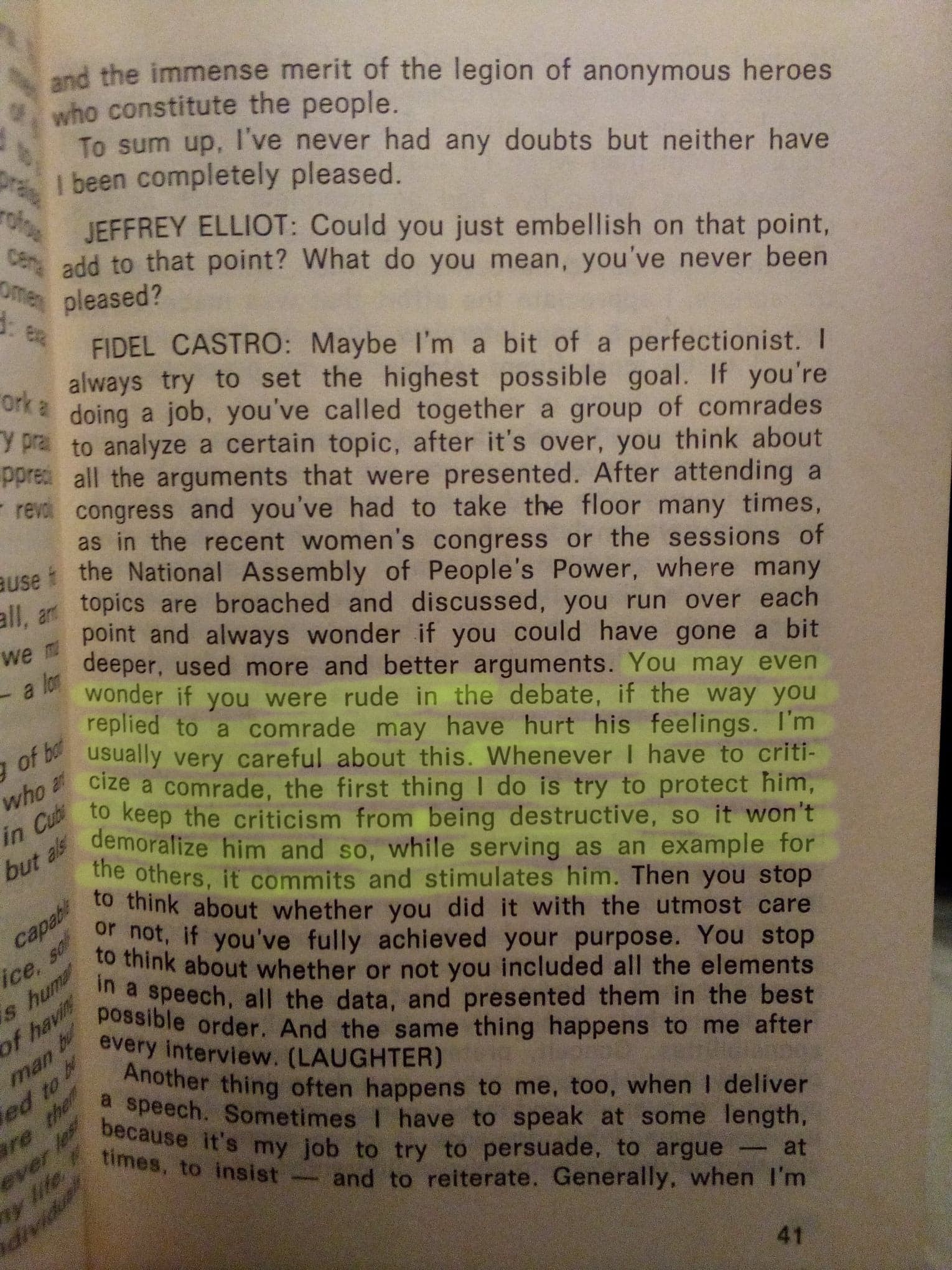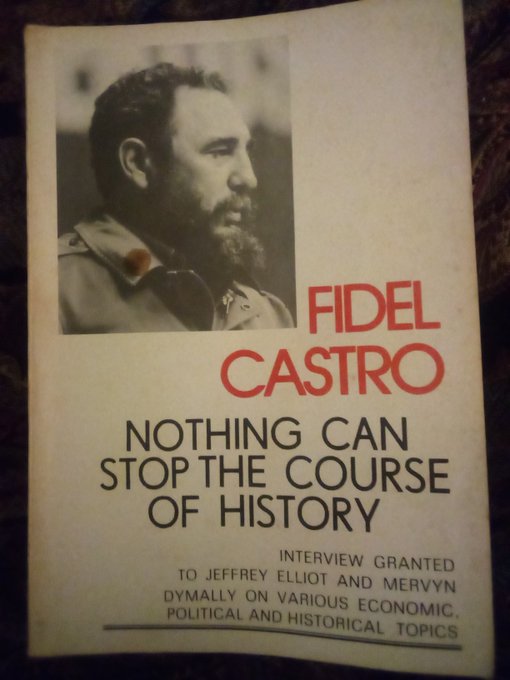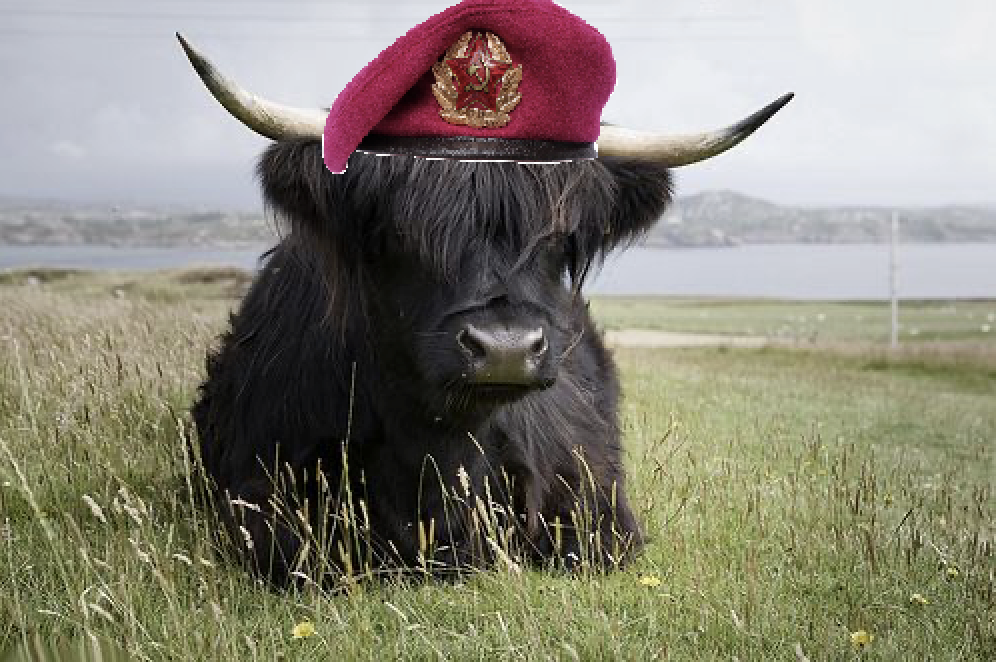I read the entire book Joe wrote but I’m not sure I’m fully understanding it
There are many ways of modelling the same thing.
Imagine you have a limited amount of money to fence in your yard.An economist would say “you have a budget”.
A cyberneticist or a linear programmer would say “you have a potentially binding constraint on your objective function”.
A marxist might say “there is a contradiction between the size of your enclosure and the amount of fence you can buy”.
A normal person would say “well there’s a tradeoff. I can fence in my whole yard or I can spend my money to go drinking on the weekends.”All of these basically say the same thing. Marxists like to use dialectics which is a philosophical idea originally from idealist philosophers. When brought into the realm of materialist philosophy it gets called dialectical materialism.
Materialist philosophy is the idea that ultimately everything is matter and energy. Nowadays this gets called Physicalism sometimes. Idealist philosophy says that there are things which do exist but which are not material or energy. Ideas, gods, angels, conciousness, etc. Most people have a combination of these two ideas and so would accurately be called “Dualist” but internet leftists tend to use the term “Idealist”.
The simplest way to understand a “dialectic” is, I think, the following:
At the start of the industrial revolution in England there were the old lords and a new wealthy business class. There was a conflict between them over the limited resources. There are only so many people to control, luxury goods to purchase, government positions to hold, etc. And these people have different interests. So a Marxist would say, when speaking in terms of dialectics, that “there is a contradiction between the aristocracy (landowners) and the bourgeoisie (business owners, capitalists)”.Now obviously the relative strength of either side in this conflict can change. Maybe the business class start organizing and take more seats in parliament, maybe the lords begin raising their own knights and armies again, etc. A marxist would say that this change is actually not unusual but a key part of the system. They say that modelling things using dialectics and materialist philosophy means we can understand how things change and not be so surprised when they do. And when something does change they might say “the dialectic is in motion” or “the contradictions are sharpening”.
Ultimately the entire thing is fancy language from the 1800s that should probably be replaced because it’s alienating and bad for propaganda. “Conflict”, “tradeoff”, and “change” are much more sensible in 21st century English than “contradiction”, “dialectic”, and “motion”.
wow that makes sense thanks. Is there a list of contradictions I can find?
There might be a list someone made somewhere but I don’t think that’s how most people use dialectics.
Usually it’s clear what the internal conflict is in something. In the US there are the conflict between workers and owners, but in electoral politics/government many would say that the conflict is actually between one side of the capitalists and another (there isn’t a worker party in government in the US).
Anything where there is a tradeoff to be made and where human groups are involved will probably get called a “contradiction” or a “dialectic” by a Marxist at some point. Maoists tend to use the terms much more broadly, even describing the process of water boiling as a dialectic/contradiction. Next time you see a a hierarchy or a power structure or something, think about whether there are two sides competing over a limited resource. That’s a dialectic way of thinking. If you assume that the most important things controlling that conflict are physical, you’re a dialectical materialist.
Next time you see a a hierarchy or a power structure or something, think about whether there are two sides competing over a limited resource
I think that’s a good first step for someone getting started with dialectics, but the term is broad and applies more broadly than only to class society or revolutionary praxis. Maoists are not the only ones who say that water boiling is a dialectic, but they would be correct (my experience with maoists is that they just talk about committing violence a lot)
Dialectics are a natural phenomena that happens around us, if very abstractly (it’s not literally a force or power like a watermill would be, but it exists as a process). If dialectics didn’t exist elsewhere than in marxism, then it wouldn’t be a helpful tool to us, because it wouldn’t allow us to find out the objective nature of the world. The objective nature of class society is that there emerges an exploitative class and an exploited class, and either cannot exist without the other.
We need to dig out this objective nature to engage in effective praxis. As Marx said, philosophers have only interpreted the world: the point is to change it. Dialectics is currently as close as we can get to the objective nature of the world, and we need materialism for that because we need to be clear that only the material world exist and is worth effecting change in, not the metaphysical (supernatural) world. Probably in a few hundred years or so we’ll either evolve dialectics or replace them with a new, more objective and correct model. I can’t know, but this is as good as it gets for us at this point in time.
This is also why dialectics can’t be disproved, otherwise it would be too easy for opponents of marxism to say that dialectics is just communist nonsense. Dialectics is derived from natural phenomena and is observable. The seed for example contains the potential to become a plant, and the contradiction between the seed and plant is resolved when the seed sprouts. It has gone through dialectical change: there was a seed, now there’s a sprout.
You don’t necessarily have to use dialectics outside of revolutionary praxis (though I think it helps one become familiar with the framework); you can focus dialectics on your revolutionary work. But it still exists and is still happening whether we are there to witness it or not.
In your earlier example, all of the professionals that are asked about fencing the yard are essentially all superseded by dialectics. The economist points out a contradiction (and I think this is what you were conveying?), but it’s incomplete. When we get to the true contradiction, the dialectical one, we can tell the tenant why they actually can’t fence their yard.
I would also like to correct, if you’ll allow me, the misconception that materialism is the idea that everything is made of matter. I think this is not necessarily wrong to grasp the concept, but can quickly lead into vulgar materialism deviation. Materialism is the philosophical outlook that only the material world exists, and everything is the result of material interaction. Ideas exist and don’t solely belong to idealists. This can be demonstrated very quickly by simply thinking about something, or finding a solution to a problem. If ideas were not material, then materialism would simply be wrong or an incomplete model because I don’t think anyone can disprove ideas exist when they need to have the idea to disprove them in the first place.
We can say that ideas are the result of material interaction (through brain cells interacting, which is a meat organ), but I still think this is veering into vulgar territory. It leads some people to start rejecting LGBT identities because “gender doesn’t materially exist”.
I take a very tautological approach: if something exists, then it’s material. This is what the material world is. Ghosts don’t exist, they’re metaphysical (the Greek word that means the exact same thing as the Latin supernatural). God doesn’t exist, he’s metaphysical. Religion exists and this is easily demonstrated, but the God that religions believe in is not materially demonstrated or tested. LGBT identities exist in the material world as well.
edit: Metaphysical is an interesting term and contradiction. Physics was the study of nature. We think of nature as the plants, rocks, animals, etc, but we humans are just as part of nature as them. The laws of physics that you may be more familiar with are also part of nature; they’re literally the laws of nature! Space, planets, stars, the power of steam, the flow of water… are physics and part of nature. Meta means beyond or above. Beyond physics, beyond nature, is the metaphysical world. If the natural/physical world is dialectic (it is), then what exists beyond nature? What other world can exist? One that can’t be dialectical, otherwise it would be part of our physical world. That’s why metaphysics is described as the idea that things never change, they always were and always will be the same. “The more things change the more they stay the same” is one variation of this. Metaphycists think that “people have always been selfish”, or that attempting revolution is foolish because it will just lead to the same problems as the current regime. Speaking of supernatural; vampires don’t exist, but people sometimes thought they did and treated bodies as if they were vampires. The idea of the vampire existed in the material world (and created by material conditions) even if the vampire didn’t. Vampires are therefore metaphysical. If vampires existed, then they would be part of the physical world. Supernatural is the exact same thing as metaphysics, just using Latin words instead of Greek.
Speaking of religion this is another deviation that vulgar materialism leads one to (that I’m not saying you’re doing, just to be very careful about not falling into it for the readers!) – their model would mean that nothing abstract can exist, and so dialectics can’t exist, because dialectics are not made of matter. Dialectics describe the process of matter (among other things), but isn’t made of matter itself.
The thing is dialectics are literally endless, contradictions create other contradictions both in the thing itself and in other things as well. Everything is connected through that process, and that’s why it can feel daunting.
@Rextreff@lemmygrad.ml this is also why there can’t be an exhaustive list of contradictions. We can certainly give dozens of examples but there are billions of contradictions current and past, and there will be billions more. Contradictions, when resolved, make change happen and other contradictions emerge. This is how things move forward in the world, how the seed become a sprout, how the student becomes a teacher, how water boils, how classes emerge and get overthrown, how industrialization happens, how capitalism becomes imperialism, how Marx emerged, how there came to be marxists, how marxists organize.
I also wanted to add that not Marx, Engels, Lenin, Stalin, nor Mao came up with dialectical materialism. It was actually a guy called Dietzgen. No one reads him anymore but you can if you want. Lenin and Stalin quote him heavily since he’s the first one to actually use the term.
You may also see similar things outside of Marxism which look quite a bit like dialectics. Structuralism does something really similar with it’s “inverses” concept. I’m not a fan of dialectics since it feels a bit too idealist for me. Mechanical Materialism is more my style but it’s nothing worth fighting over.
If you want a detailed read on Dialectical Materialism. Check out: The Worldview and Philosophical Methodology of Marxism-Leninism.
Everything is connected and constantly changing; qualitative changes result from many quantitative changes. This is basically dialectical materialism. Historical materialism is the application of dialectical materialism to analyzing history – “human nature” is dynamic, the existence of classes lead to class struggle, etc.
This is the best reference for diamat: https://en.prolewiki.org/wiki/Library:Elementary_principles_of_philosophy. I haven’t read Stalin’s one yet and I will to compare, but I’m still recommending Politzer as the best.
You should also check out ProleWiki. We have a page on it heavily taking from Politzer’s book: https://en.prolewiki.org/wiki/Dialectical_materialism.
I’ve been wanting to make diagrams to help visualize diamat but I’m not sure I know enough to make them accurate and not introduce confusion or mistakes, it’d be based on the way I see dialectics which I sometimes kinda see as heterodox to most Marxists lol.
There are diagrams in that Vietnamese college book on diamat. I’ll try to think of the title and translator. Was it Luna Oi, maybe? You could ask to use them, with a link to the book. The ebook is free, anyway, so they might just appreciate the advertising.
We actually have it on ProleWiki!
That’s probably where I read it. I’m tired lol.
I found this to be really useful as well, it’s systematic and fairly thorough: https://www.marxists.org/archive/cornforth/1953/materialism-and-dialectical-method.pdf
Materialism: Things that happen, had a cause. Nothing “just happens”. Sometimes there is a long chain of causes/effects that lead to a big event, even if we don’t know all the details yet (or ever). The more details we learn, the more causes/effects can be mapped out, the better our predictive ability becomes regarding future causes/effects.
Dialectics: Basically, just troubleshooting a solution to a conflict.
“The only constant is change”
It’s cliché, but I think it captures the essence of it pretty well, especially for how concise it is.
dialectics -> things as a process
materialism -> conformity to law
3 books on this are:
- utopian and scientific socialism by Engels
- the development of the monist view on history by Plekhanov
- dialectical and historical materialism by Stalin
This looks like a troll account? I kind of want to engage, but it looks like I’ll be losing time.
It’s important for us not to waste out time arguing with rightoids but I think you may be a bit overtuned comrade. I think we can learn from Fidel on this one :D

Fair call. The post ended up being a beautiful read, I’m happy with what you made of it.
I hope I’m wrong, that OP isn’t a troll and decides to join us for the long haul. :)
What is the name of this book? 👀
here you go comrade :D

Thank you! You are awesome!
 SHUT UP SHUT UP SHUT UP! OH MY FUCKING GOD!
SHUT UP SHUT UP SHUT UP! OH MY FUCKING GOD!calm down
You clearly haven’t heard the matt shut up clip
Also this was supposed to be a reply to a different post woops.
Then just delete it.
Nah I will own my fuckup
I found a YouTube link in your comment. Here are links to the same video on alternative frontends that protect your privacy:









